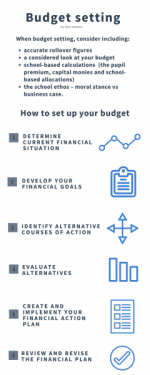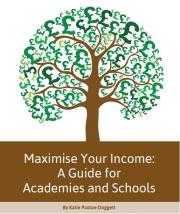Budgeting will be a primary focus for school business managers, especially as schools face budget deficits, higher costs and frozen incomes.
In a survey of more than 1,000 state schools published by the National Association of Head Teachers (NAHT), nearly two out of three schools said they could only balance their budget by raiding their savings or by imposing significant spending cuts. Half reported that they were making cuts in staffing, including teaching and teaching assistant posts, The Guardian reported.
No wonder so many SBMs are having sleepless nights.
Let’s deal with the painful facts first.
But all is not lost. Thankfully, we have a range of advice from experienced practitioners and consultants in the field that you can implement today to ensure you’re using the funds effectively for the benefit of your school.
Take a look at these tips and consider how you and your team can work together to make that money stretch.
Knowledge is power. By setting an annual budget, you have an idea in your head right at the beginning of the year.
Predict the future. Determine your known expenditure. For most of you, your starting budget is 85% of your income and there will be ongoing contracts that you’ve set up previously.
One direction? All things have a shelf life: try and predict the changes in budget direction. For example, changes to pupil premium funding.
Team spirit. Share responsibility and give others ownership of the budget. That will make people think more before they spend money!
Know your limits. Accept that there are non-negotiables: this could be related to pupils, health and safety or premises management.
Be flexible. While you do need to determine your income as an annual amount at the very beginning, it doesn’t have to be set in stone. You can monitor however and whenever you like.
Stick to the rules. At the same time, do make sure you are always meeting the terms given to you by your governors, the DfE and the local authority.
Think ahead. Start looking at the longer-term value of what you’re spending money on and whether it’s having the necessary impact.
Think SIP. Remember that every penny that comes through the door has to be linked to the School Improvement Plan. Your school’s core purpose will always be teaching and learning.
Benchmarking. Even if you only benchmark against what you’ve done historically, there’s still a value to that.
Want more expert advice? Check out our webinar on school budgets: how to plan and monitor effectively from expert, Sue Birchall. We also have some excellent advice in the budgeting process: getting it right.
When budget setting, do consider including:
 Download the budget setting tool (right) to help you set your budget.
Download the budget setting tool (right) to help you set your budget.
Another challenge SBMs face is writing that winning bid letter. We have some great advice including successful bid writing: 32 top tips and how to write that winning bid letter.
Here’s a sneak preview of some of our expert tips.
 We’re also very excited about our new book: Maximise your income: a guide for academies and schools by Katie-Paxton Doggett, a qualified solicitor and chartered company secretary who works as an adviser to a number of single academies and multi-academies.
We’re also very excited about our new book: Maximise your income: a guide for academies and schools by Katie-Paxton Doggett, a qualified solicitor and chartered company secretary who works as an adviser to a number of single academies and multi-academies.
From taxation, procurement and risk management to bidding and donations, this book offers a range of advice and creative ideas about how economies can be achieved, income increased or value added.